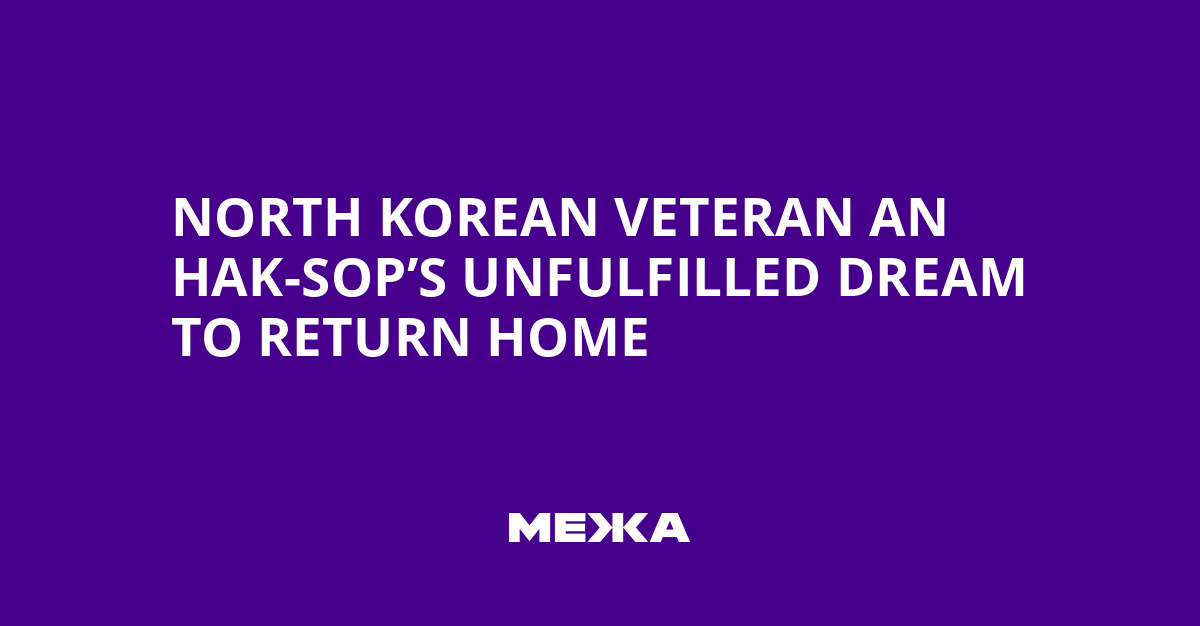In Paju, a town near the border between South and North Korea, a 95-year-old An Hak-sop currently lives. During the Korean War he was taken prisoner, and for decades he spent behind bars for refusing to renounce his political beliefs. Now his sole wish before death is to return to North Korea and be buried alongside his comrades.
An has lived a life that he calls the echo of the American occupation of South Korea – first as a soldier in the North Korean army, then as a dissident in the country that seized him.
His resolve not to renounce his views led to more than four decades in prison in the South. Now, frail and wheelchair-bound, he tells reporters about his wish to cross the DMZ one more time and be buried in the country that defined his life.
On Wednesday An slowly approached the bridge that crosses the Demilitarized Zone, asked for permission to cross into the zone – one of the most heavily guarded areas in the world – and enter North Korea.
After several hours of clashes with guards and numerous protests in support of his move, the government denied him ground access, and An turned back. The denial was incredibly crushing for him.
“I miss the North; it’s unbearable.”
– CNN
“I want to be buried in free land,” he added during a conversation with journalists.
“I want to be buried in free land”
– CNN
Since then, policy attention has turned to the situation: the Seoul government banned civilians from unauthorized contact with North Korea, and civilians are forbidden from entering the tightly guarded DMZ. Although the 1950–1953 war ended with a ceasefire, not a peace treaty, North Korea and South Korea formally remain at war.
“North Korea – the beginning of my life”
– CNN
If An had the opportunity to return, Pyongyang could use his return as a symbolic victory. Yet for him this is not only a political matter, but a deeply personal story – a desire to return to the “homeland of ideology,” to North Korea, which defined his life.
“I arrived here, to the American ‘colony’… to fight against the United States, but I couldn’t do anything and simply served a term in prison”
– CNN
Now An lives in a modest house about a kilometer from the border with North Korea, just a few blocks separate him from the line. He receives social support and help from acquaintances, but his views remain unchanged: his mission must remain unfinished.
“Either expel the Americans from this land, or die”
– CNN
The Seoul government is weighing various humanitarian options, but any decision requires coordination with Pyongyang. Currently, the main cautious position of law enforcement is that An’s return is possible only with coordination between the two Koreas, which substantially reduces the chances of a quick resolution to his personal dream.
“How can I return with a sense of shame? If I must cry out ‘USA out’, I must do it here, not in the North. That is why I did not return… I was determined to die after seeing the Americans leave this land”
– CNN
Despite worrying signals from the international community, An Hak-sop’s story leaves a deep mark in discussions about human dignity, family and national boundaries that bring two countries into contact. Life in the South continues under the watch of law enforcement, and his personal dream remains to stand as an example for those who face the borders between two worlds.
